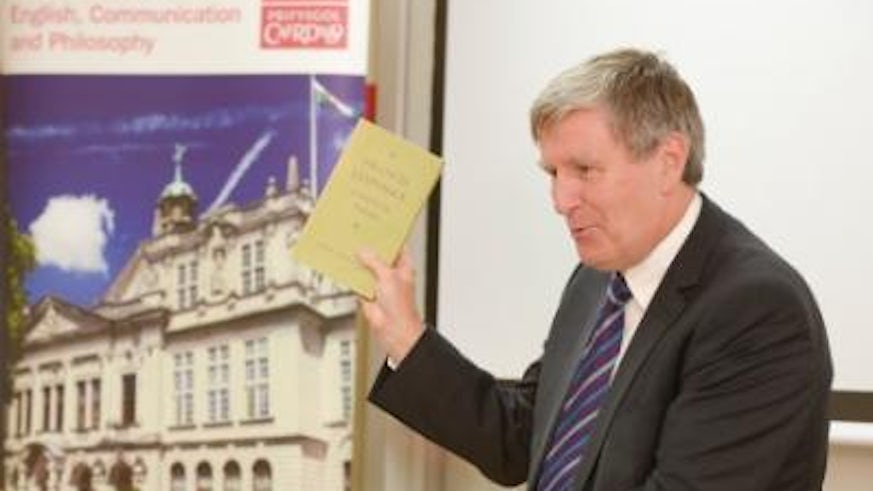Ireland, Wales and the First World War
22 September 2014

Humanities scholars from Wales, Ireland, England, Scotland and the United States recently converged at Cardiff University for a unique three-day conference on 'Ireland, Wales and the First World War'.
Organised by Professor Katie Gramich from the School of English, Communication and Philosophy, this was the latest event sponsored by the Wales-Ireland Research Network, a flourishing interdisciplinary group of academics engaged in comparative research on modern Wales and Ireland. The Network was initiated in 2005 and is jointly run by Professor Gramich, Professor Claire Connolly of University College Cork, and Dr Paul O'Leary of Aberystwyth University.
One of the first centenary conferences held to commemorate and re-examine the First World War, this event examined the specific and often diverse responses to the war in Wales and Ireland and the differing historical narratives, memories and cultural artefacts which emanated from those war experiences.
The conference was launched with a lecture by special guest Dr Daniel Mulhall, the current Ambassador of Ireland to Great Britain, who spoke about the 'secret scripture' of two neglected Irish war poets, Tom Kettle and Francis Ledwidge, both of whom fought and died on the Western Front. The lecture initiated a fascinating conversation among a large audience of academics and postgraduate students about the complex and conflicting responses to the war on the part of nationalists in both Ireland and Wales.
Over the following two days, participants heard an array of stimulating papers, encompassing subjects such as the design and meaning of war memorials, the visual art of war, the experiences of conscientious objectors, the role of the press and censorship in time of war, the poetry and fiction of the period, changing gender roles and attitudes, conflicting national identities, and notions of Britishness.
Two plenary lectures, on the Mountain Ash-born Irish writer, Joseph Keating, by Dr Paul O'Leary and on the poet Robert Graves, of Irish extraction but whose family lived in Harlech, by Dr Mary-Ann Constantine, brought home to the audience how the extreme circumstances and effects of war could effect seismic shifts in notions of personal, national, and artistic identity. Later, two creative prose readings by the historian, Professor Angela John, and the novelist, Mari Strachan, showed how contemporary writers have revisited, vividly reimagined and reinterpreted the events of 1914-18 and their aftermath.
The conference was brought to an end by a rich and wide-ranging lecture by Professor Sir Deian Hopkin, currently the expert advisor to the Welsh Government on World War One commemoration. Sir Deian's lecture asked the pertinent questions: what exactly is it that we are commemorating in 2014, why are we doing so, and what will be the legacy of this commemoration in future years? He argued persuasively that the major digitisation projects that are being conducted in relation to the war should not be allowed to become simply an online 'Antiques Roadshow' of historical objects and texts. Instead, humanities scholars should ensure that the wealth of new material that is being made available is interpreted, contextualised and rendered meaningful for future generations.
To coincide with the conference, an exhibition has been curated in SCOLAR, the University's Special Collections and Archives based at the Arts and Social Studies Library. Entitled 'Wales and Ireland: Images of Two Wars, 1914-1918', the exhibition draws on the University's rich collections (in three languages: Welsh, Irish, and English) to reveal intriguing material documenting World War One and the Easter Rising. Although the conference is now over, this exhibition will continue throughout September and October and is open to all.
Image caption: Dr Daniel Mulhall presenting his lecture at the conference